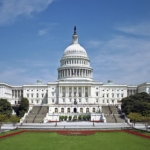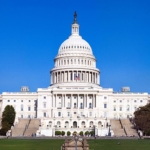Why the U.S. Military Isn’t Ready for Civil War
The unimaginable has become reality in the United States. Buffoonish mobs desecrating the U.S. Capitol building, tanks parading down the streets of Washington, running battles between protesters and militias, armed rebels attempting to kidnap sitting governors, uncertainty about the peaceful transition of power—if you read about them in another country, you would think a civil war had already begun. The basic truth is the United States might be on the brink of such a war today. Americans must now take the proposition seriously, not just as a political warning but as a probable military scenario—and a potential catastrophe. . .
Only a spark is needed, one major domestic terrorist event that shifts the perception of the country—an anti-government patriot who takes his rage against the federal authority and finds expression in flying a drone loaded with explosives into the Capitol dome or a sheriff who decides to take up arms to defend the doctrine of interposition. It’s even possible, though unlikely, that a left-wing rejection of the police, like the Capitol Hill Autonomous Zone in Seattle, might force military action. Retired U.S. Army Col. Peter Mansoor, a professor of military history at the Ohio State University, is a veteran of the Iraq War who now studies the insurgencies of the past. He doesn’t have any difficulty picturing a contemporary U.S. equivalent to civil wars elsewhere. “It would not be like the first Civil War, with armies maneuvering on the battlefield,” he said. “I think it would very much be a free-for-all, neighbor on neighbor, based on beliefs and skin colors and religion. And it would be horrific.” . . .
Under the conditions of the Insurrection Act, the Justice Department is the lead federal agency in cases of homeland pacification. In practice, this means the president would appoint a senior civilian representative of the attorney general to oversee military operations. The two-tier authority that results—inherent in the double role of police action and military action—would crush intelligence-gathering efforts. The Reagan administration explicitly decreed in Executive Order 12333 that the military is only allowed, in the case of U.S. citizens, to gather enough information for situational awareness. The nub of the problem is coming up with an effective definition of the phrase “essential to meet operational requirements,” as the Defense Department terms it. Any failure to uphold the constitutional rights of the rebels would justify their claim that the government is illegitimate.
The struggle would take place under conditions of greater scrutiny than any U.S. military operation in history. Information operations are the great weakness of the U.S. military; control over the subtle but all-powerful narratives that give governments legitimacy have always eluded even the most brilliant American soldiers. Four-star Army Gen. John Galvin, back in 1986, described the military mind as “uncomfortable with warfare’s societal dimension.” Every general who has written a new counterinsurgency operating manual—or reported on the reasons for the failures in Afghanistan and Iraq, including retired Army Gens. David Petraeus and Stanley McChrystal—has mentioned the same weakness in understanding the interplay of culture and conflict. Military leaders are, by nature, technicians rather than humanists. They are deliberately not politicians. The Joint Chiefs of Staff’s failure to address the informational nature of conflict in the 21st century is another example of the oldest crisis in warfare. The generals are always preparing for the last war.
During a domestic operation, the military information support officer would be more important than anyone in the intelligence preparation of the battlefield process or any of the engineering officers. Whatever actions are undertaken will be in the context of a highly active and highly polarized media and in the context of a highly polarized legal system with diminishing legitimacy. For half the country, the military engagement against insurrectionists or terrorists will be necessary to preserve democracy and the rule of law. For the other half, it will be the desecration of individual liberty. The beginning of any action, of any sort, by a U.S. military force against U.S. citizens would create an automatic sense of illegitimacy. The already incipient legitimacy crisis would be exacerbated. (Read more from “Why the U.S. Military Isn’t Ready for Civil War” HERE)
Delete Facebook, Delete Twitter, Follow Restoring Liberty and Joe Miller at gab HERE.










